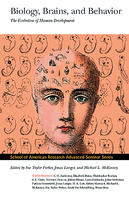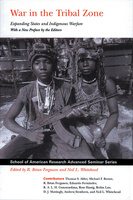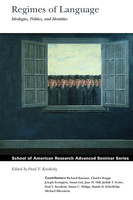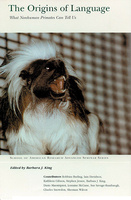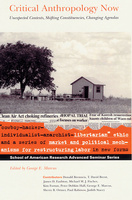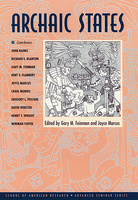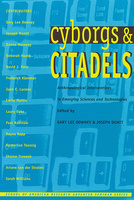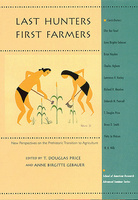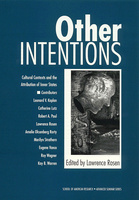Biology, Brains, and Behavior
The Evolution of Human Development
An exciting new cross-disciplinary field of biocultural research is emerging at the start of the twenty-first century: developmental evolutionary biology.
War in the Tribal Zone
Expanding States and Indigenous Warfare
War in the Tribal Zone, the 1991 anthropology of war classic, is back in print with a new preface by the editors. Their timely and insightful essay examines the occurrence of ethnic conflict and violence in the decade since the idea of the "tribal zone" originally was formulated.
Regimes of Language
Ideologies, Polities, and Identities
In Regimes of Language, ten leading linguistic anthropologists integrate two often segregated domains: politics (without language) and language (without politics). Their essays contribute to an understanding of the role of language ideologies and discursive practices in state formation, nationalism, and the maintenance of ethnic groups, on the one hand, and in the creation of national, ethnic, and professional identities, on the other.
The Origins of Language
What Nonhuman Primates Can Tell Us
In The Origins of Language, ten primatologists and paleoanthropologists conduct a comprehensive examination of the nonhuman primate data, discussing different views of what language is and suggesting how the primatological perspective can be used to fashion more rigorous theories of language origins and evolution.
Critical Anthropology Now
Unexpected Contexts, Shifting Constituencies, Changing Agendas
Building on the legacy of Writing Culture, Critical Anthropology Now vividly represents the changing nature of anthropological research practice, demonstrating how new and more complicated locations of research-from the boardrooms of multinational corporations to the chat rooms of the Internet-are giving rise to shifts in the character of fieldwork and fieldworker.
Archaic States
One of the most challenging problems facing contemporary archaeology concerns the operation and diversity of ancient states. This volume addresses how ancient states were structured and how they operated, an understanding of which is key to our ability to interpret a state's rise or fall.
Cyborgs and Citadels
Anthropological Interventions in Emerging Sciences and Technologies
Some of the country's most influential thinkers use anthropological methods and theories to examine the practices and practitioners of contemporary science, technology, and medicine in the United States. The authors explore such questions as how science gains authority to direct truth practices, the boundaries between humans and machines, and how science, technology, and medicine contribute to the fashioning of selves.
Senses of Place
The complex relationship of people to places has come under increasing scholarly scrutiny in recent years as acute global conditions of exile, displacement, and inflamed borders-to say nothing of struggles by indigenous peoples and cultural minorities for ancestral homelands, land rights, and retention of sacred places-have brought the political question of place into sharp focus.
Last Hunters, First Farmers
New Perspectives on the Prehistoric Transition to Agriculture
In case studies ranging from the Far East to the American Southwest, the authors of Last Hunters-First Farmers provide a global perspective on contemporary research into the origins of agriculture. Downplaying more traditional explanations of the turn to agriculture, such as the influence of marginal environments and population pressures, the authors emphasize instead the importance of the resource-rich areas in which agriculture began, the complex social organizations already in place, the role of sedentism, and, in some locales, the advent of economic intensification and competition.
Other Intentions
Cultural Contexts and the Attribution of Inner States
The authors argue that although intentionality might appear to be a wholly abstract phenomenon, it is deeply entwined with the nature and distribution of power, the portrayal of events, the assessment of personhood, the interplay of trust and deception, and the assessment of moral and legal responsibility.

